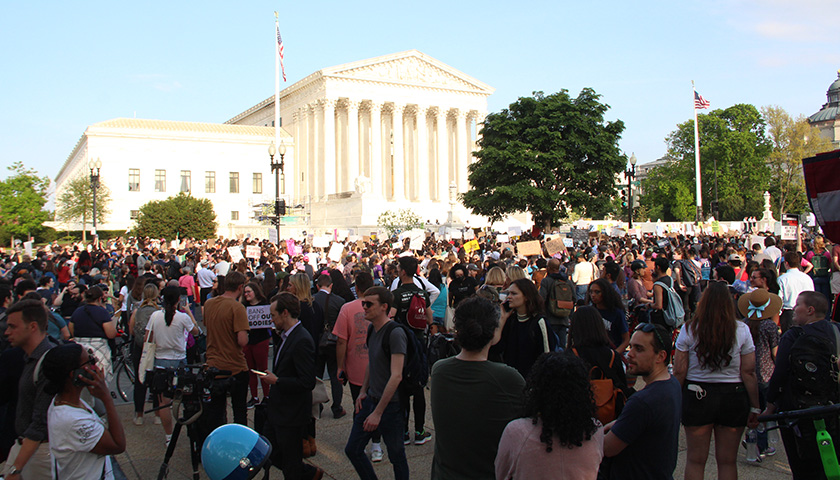An index created by Vanderbilt University that is used to track political polarization and faith in America’s institutions says that Americans are becoming less polarized, according to the school’s second-quarter analysis.
“Americans’ general faith and trust in democracy has stabilized in the first half of 2022, remaining relatively flat throughout the second quarter, according to the most recent Vanderbilt Unity Index,” according to the school’s analysis.
“The index, which seeks to quantify unity by measuring fluctuations in Americans’ general faith and trust in their political institutions on a scale of 0-100, ticked slightly upward to 57.32 as of June 30, 2022, from 57.12 at the close of the previous calendar quarter,” the Vanderbilt study found.
The higher the score on the index, the more faith Americans have in the country’s institutions, and the less extreme America’s political polarization tends to be.
In order to measure polarization, Vanderbilt takes into account the five following factors:
- Strong presidential approval/disapproval ratings
- Surveys of ideological extremism
- Attitudes measured by the General Social Survey
- Congressional polarization, based on roll call votes
- Frequency of polling questions about protests and civil unrest
These factors have been available for measurement since 1980 and, according to the school, political polarization reached an all-time measured low in 1990, before President George H.W. Bush was elected. It spiked during former President Donald Trump’s term in office, “with nine of the 10 lowest-scoring quarters occurring between 2016 and 2020,” the university noted.
However, it’s not all good news.
Several significant political developments have occurred since the data was analyzed at the end of the second quarter.
“While these data do not fully reflect the potential fallout from the recent Supreme Court cases, including the landmark abortion ruling in Dobbs v. Jackson Women’s Health, these decisions, coupled with rising inflation and the ongoing Jan. 6 hearings, appear to have had minimal impact on Americans’ sense of unity. That may change, but at least at this point it is a positive sign,” said John Geer, the Dean of the College of Arts and Science at Vanderbilt University.
Geer is one of the authors of the index.
Dobbs v. Jackson Women’s Health overturned Roe v. Wade, allowing individual states to control abortion laws.
In late June and early July, a rash of mass shootings also once again brought to the forefront of American political debate the polarizing issue of gun control.
_ _ _
Pete D’Abrosca is a reporter at The Tennessee Star and The Star News Network. Email tips to [email protected].
Photo “U.S. Supreme Court” by Janni Rye. CC0 1.0.






The opposite has to be true! The American people do not trust government, media or academics because all have been politicized. What a waste of time publishing a study like this which again is by an institution without trust and support.
Good thing we have a representative republic instead of a democracy. This sounds like worthless piece of made up crap by delusional doctrinated educrats.